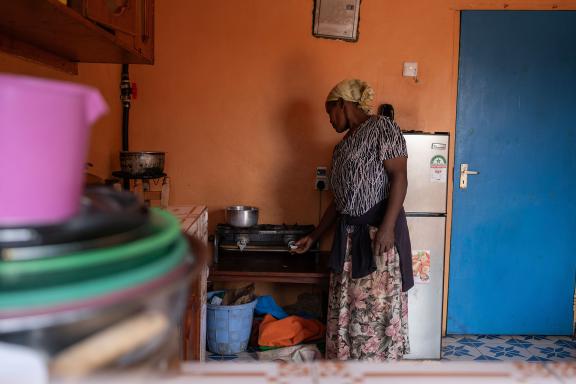Although the African continent is responsible for only three per cent of the world's human-induced greenhouse gas emissions each year, it is expected to suffer some of the most severe consequences of climate change. Significant investments in Africa's infrastructure, manufacturing capacity, and economy are necessary to helpthe continent's adapt and mitigate the effects of climate change.
In Swahili, KawiSafi means “clean energy.” Created and developed by the impact investor Acumen with financing by the Green Climate Fund (GCF), KawiSafi Ventures Fund unlocks the potential of renewable off-grid energy as a faster, cheaper, and cleaner way to bring power to communities in East Africa.
Rwanda has 70 per cent of its population living off-grid. Energy costs are high, both for on- and off-grid customers, because of a heavy reliance on imported oil and kerosene. Meanwhile in Kenya, 80 per cent live off-grid with 35 million without access to affordable and reliable electricity. Rapid population growth is increasing demand for electricity and placing further demands on grid supply.
By investing in Rwanda and Kenya in clean energy companies that are developing decarbonised, distributed energy infrastructure, KawiSafi provides critical essential services and enhanced productivity to underserved populations across Africa.
Lack of electricity and high kerosene use are addressed through affordable clean household solar energy solutions such as solar lanterns, solar home systems, and solar mini-grids. KawiSafi invests in other parts of the ecosystem such as consumer finance, mobile payment, and metering/monitoring technologies. The Technical Assistance Facility identifies and addresses core needs of KawiSafi portfolio companies to support their scale and financial viability.
KawiSafi has invested in BBOXX, a low emission energy company driving change in Rwanda. Thirty per cent of BBOXX customers are generating income using off-grid energy.
“Electricity cuts off every day, at any given moment. That is why I looked for a way to have constant power. I chose to use BBOXX solar power. The television is working, and the customers can enjoy it. My family’s livelihood has been transformed thanks to my business.”
Amar Inamda, managing director at KawiSafi Ventures Fund, said, “These markets are still young. GCF making a commitment sends a very crucial stabilising signal that tends to attract others to the party.”

Beth Nyokabi Njatha boils water at her home in Kirinyaga County, Kenya. Since the installation of a biodigester from Sistema.bio, a local biodigester company supported by KawiSafi, she's seen her gas bills drop and her crop yields rise. Through GCF financing, communities have greater access to innovative technology that help them respond to the effects of climate change. Photo © Andy, Ball/Green Climate Fund
A second extended phase of the project, KawiSafi II, will create a USD 200 million venture equity fund. Approved by the GCF Board for GCF funding in July 2023, KawiSafi II aims to close the investment gap in three key areas where sub-Saharan countries struggle to find investors: energy transition, productivity, and mobility and logistics.
Building upon the success of the initial KawiSafi project, KawiSafi II will support local businesses that are developing scalable climate action initiatives to help vulnerable African communities. In addition to providing financial support, KawiSafi II will create a technical assistance facility worth USD 10 million. This facility will help these organisations maximise their climate impact and implement strong management systems to address any potential environmental, social, and governance risks that may arise.